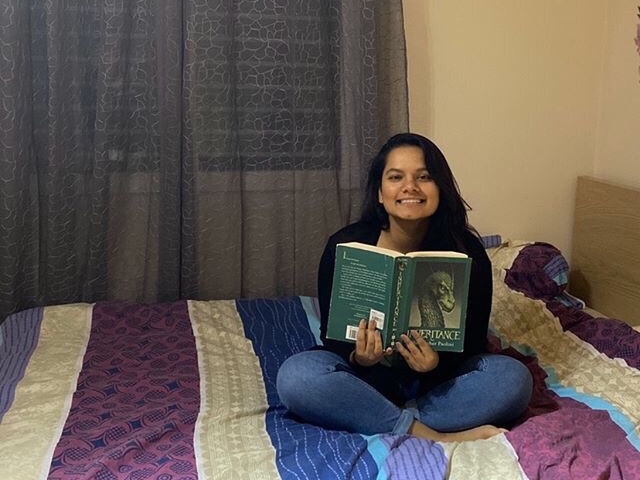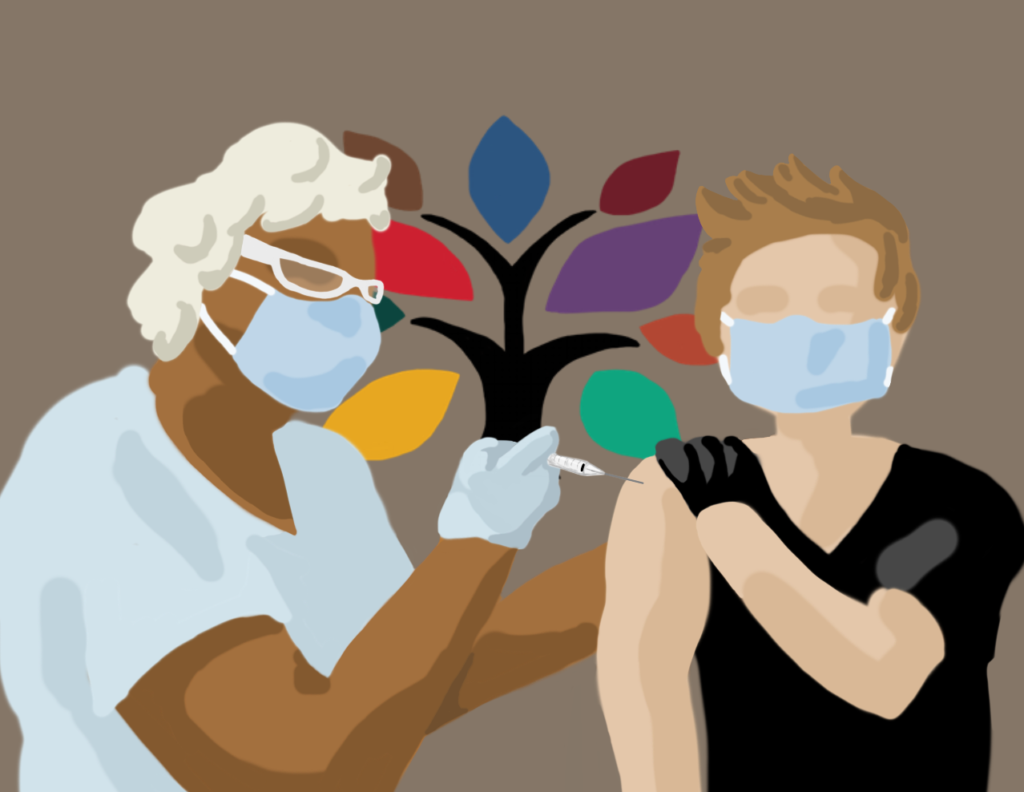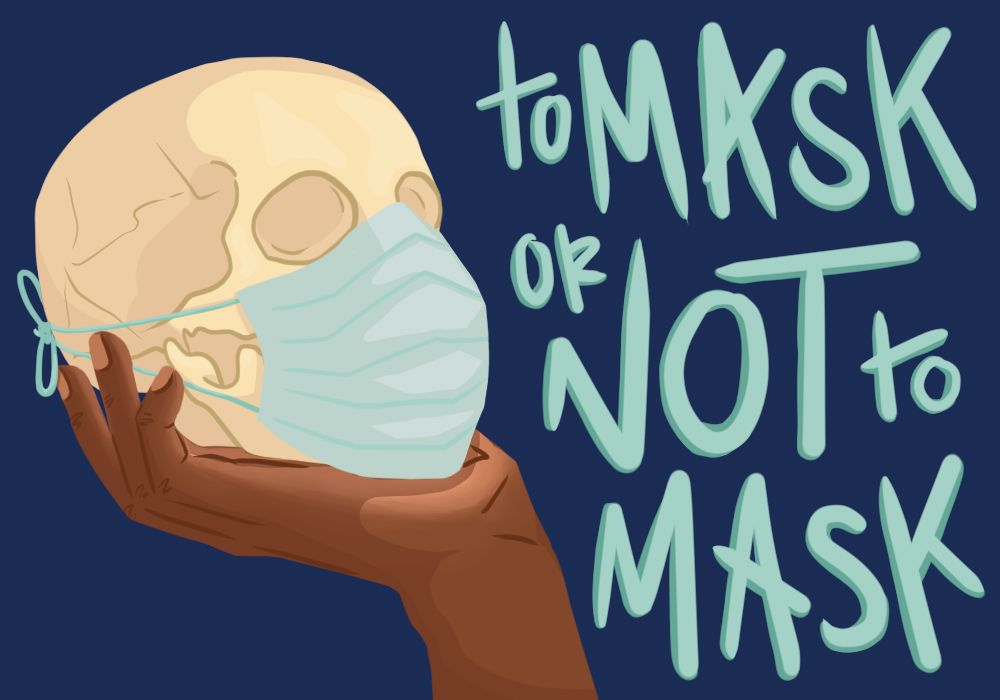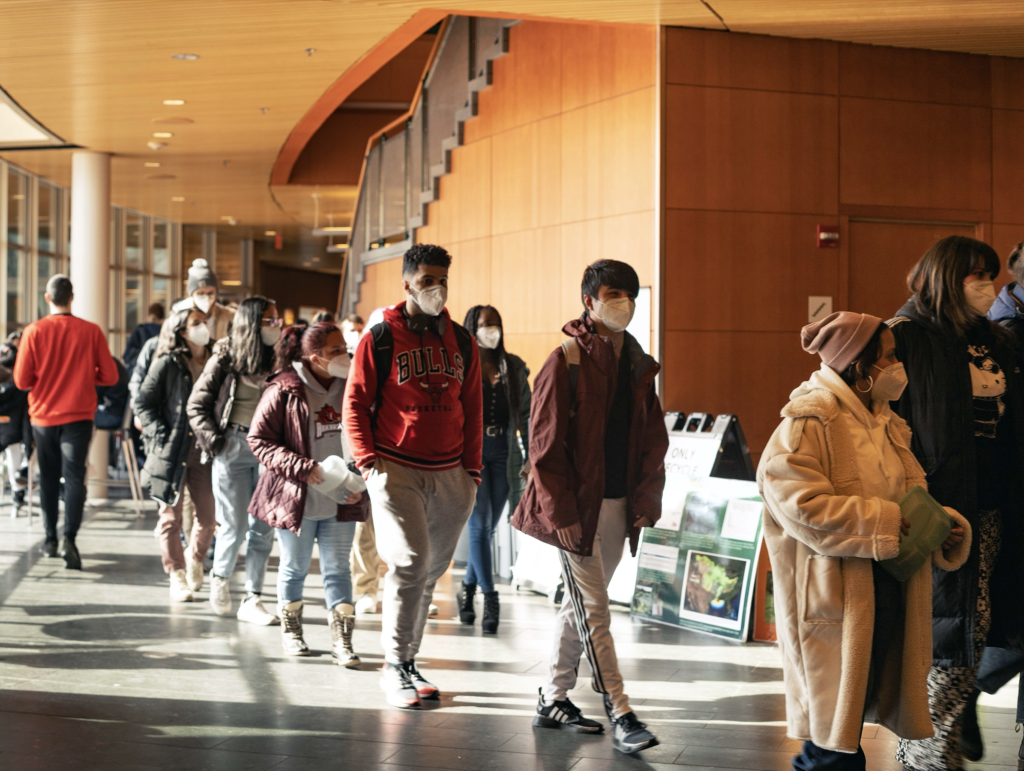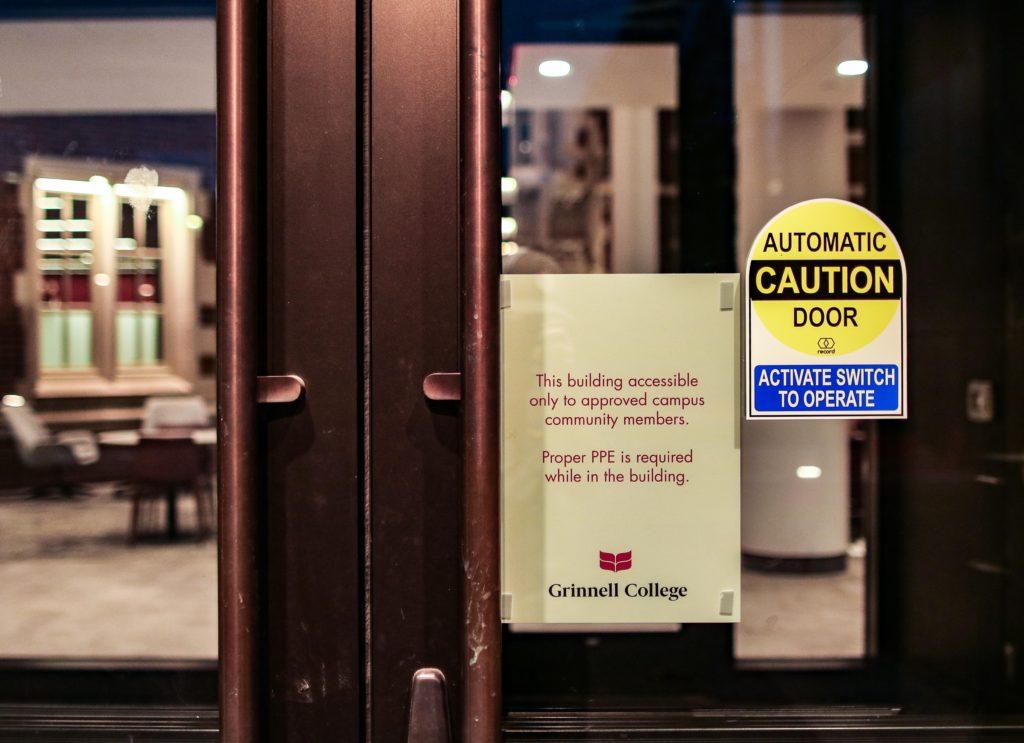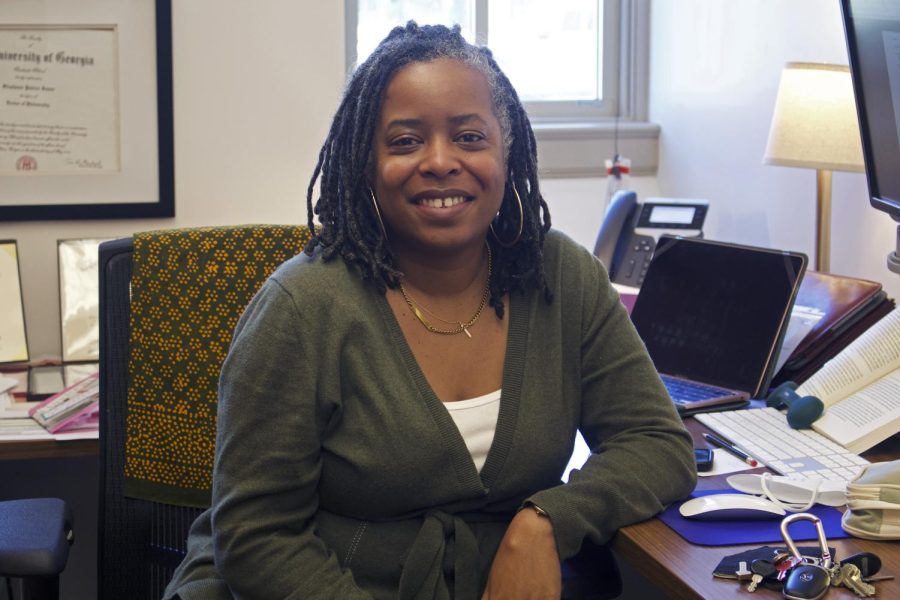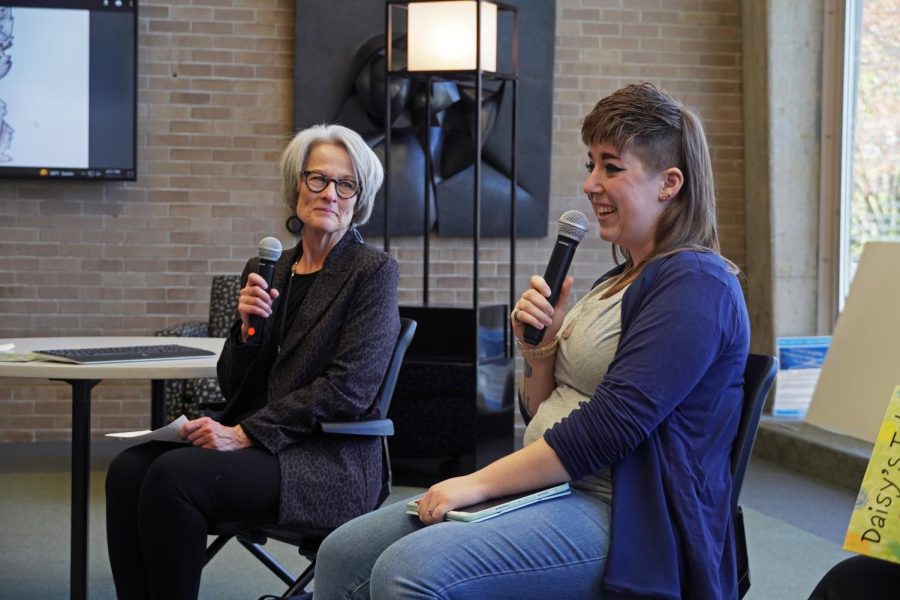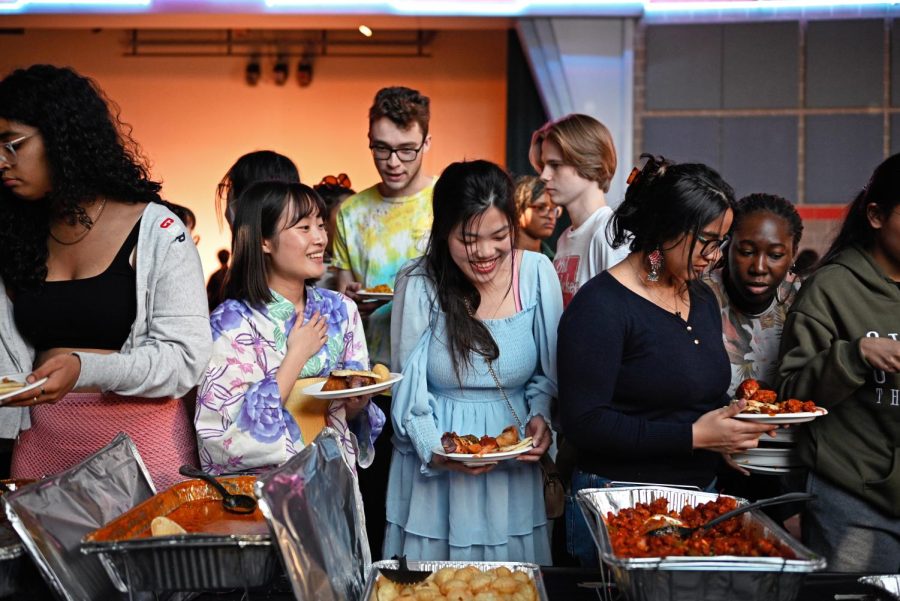When Grinnell College announced their transition to distance learning, international students were faced with different questions and challenges than those who live in the United States: stay on an empty, isolated campus, or go home to their families, unsure when and if they would be able to come back to the U.S.
For Aarzoo Bhimani ‘21, the Special Campus Memo announcing the move to distance learning was slightly disorienting, and she felt unsure what her next steps should be. With her family living in Switzerland and a high number of coronavirus cases in Europe, Bhimani decided that it would be smart to keep her options open before deciding where to live for the rest of the semester.
“At first, I was just really confused, so my safest option was to petition [to stay on-campus] and then decide whether or not I would come back [home] or not. I basically stayed there [in Grinnell] until I got word that Switzerland was gonna cancel flights. The flight I took to get home was from Chicago to Zurich, and the flight the day after the one I took got cancelled,” said Bhimani.
The College requested that all students who were not approved to live on campus leave by March 23, though that date was later moved up to March 16. For Bhimani as well as others, the approval of their petition provided extra time to decide how to proceed and to make travel arrangements if necessary.
Both Shuhan Yi ‘22 and Riku Smriga ‘23 were approved to finish the semester living on campus. However, even after they secured a place to stay, both students continued to discuss plans with their parents as circumstances around the globe changed daily.

Yi eventually made the decision to return to his home in Chengdu, China.
“Some of my best friends left [campus], and I feel safer in China. I don’t have good medical care in the U.S., so if I got infected, there’s no way for me to get medication. My parents wanted me to come home too, so I just flew back. I think I am glad to be back,” said Yi.
Bhimani and Smriga agreed that they wanted to return home for better healthcare and greater comfort. Smriga initially wanted to live on campus but reconsidered his decision to stay as fear arose of the virus spreading in Grinnell.
“I just thought if I were to get [the virus] anywhere in the world, whether I were in Grinnell or in Tokyo, then I would probably want to go back home and get the medical treatment in Japan rather than the U.S.,” said Smriga. “It’s where I’m from, so I feel most comfortable being here, and if something actually happens to me or my family, I can just be here and that’s better [for me] mentally.”
Now that the three students have made it back to their home cities, they are each adapting to their new surroundings. Bhimani is self-quarantining in her family’s home, keeping a two-meter distance (about six feet) from her family members while living under the same roof. Yi and Smriga, however, are both undergoing a fourteen-day quarantine in hotel rooms in their respective cities.
“My parents cannot see me because I am in the quarantine hotel, so they just go to work and send me some messages when possible,” said Yi. His quarantine will end on April 9.
“I hate being in a room for almost 20 days. I got quarantined in Shanghai for five days and then in my home city [Chengdu], so it’s really painful. I started to use some fitness apps so I can have fun in the room. Otherwise, it would just be so boring!”
Bhimani said that it always takes her a few weeks to fully adjust to the time change. Luckily, none of the three students have live lectures to attend in their time zones, which range from seven to fourteen-hours ahead of Grinnell.

Smriga said, “I don’t have much problem with the time difference, but I just don’t know if I can keep up with the workload, which is less than what it used to be. But [it’s hard] just waking up every morning and do[ing] whatever I have to do without the environment that I used to be in.”
Yi thinks that communication will be the most difficult part of distance learning. “I just cannot directly contact professors if I have a question for them. I have to email, which is kind of inefficient, and I really hoped that I could talk to them and my classmates directly. So that is a really sad thing, but I think that is a challenge for all students.”
Smriga, Bhimani and Yi all wonder what difficulties may lie ahead in the coming months, and they question when they will return to the United States. Bhimani had lined up research internships in the U.S. for the summer, the fate of which is now unknown.
“For now, I’m supposed to come back. For now, fingers crossed,” she said.
Yi, who is attending Grinnell College on a student visa, said that the Office of International Student Affairs was very supportive throughout this transition period and told him that his visa would be protected as long as he was taking classes. He is optimistic that it will be possible to return to Grinnell come the fall semester.
Smriga is optimistic as well. “If there is a problem for us to have to go back to Grinnell in August, it would mean that it is a problem even for a domestic student,” said Smriga.
Though the future remains uncertain, Bhimani, Smriga and Yi are glad to have made it to their respective homes safely and to be in a comfortable environment.
“Everybody’s adjusting, and everybody is doing the best we can,” said Bhimani. “A lot of things are changing that feel weird at first, but they’re necessary. And to me, the more extreme the precautions you take, the safer you’re gonna be. Nobody can predict where the virus is going. It’s just going everywhere.”


















































